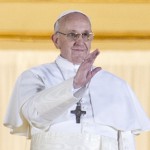
At National Review Online, Acton Research Director Samuel Gregg talks about the “profound illustration of the limits of applying secular political categories to something like the Catholic Church.” He goes on to discuss the “particular concerns” that Pope Francis has regarding economic issues, including materialism and consumerism, and the poor, all reflected through his life of asceticism. Gregg then places these reflections in the context of modern day Argentina. More:
Over the centuries … Catholics have actually disagreed among themselves about how best to help the needy. Indeed, the Church teaches that (1) these issues fall largely into the area of what it calls prudential judgment and (2) it is primarily the responsibility of lay Catholics. No Catholic can be a Communist. Nor can they be an anarcho-capitalist. But there is a lot of room between these extremes.
And how Catholics cash out that “in-between” is heavily influenced by the circumstances in which they find themselves. And in Pope Francis’s case, it’s the conditions of the economic basket-case otherwise known as modern Argentina.
Argentina is a once-prosperous nation that experienced a rapid spiral into seemingly perpetual economic dysfunction throughout the 20th century. Over and over again, Argentina has been brought to its knees by the populist politics of Peronism, which dominates Argentina’s Right and Left. “Kirchnerism,” as peddled by Argentina’s present and immediate past president, is simply the latest version of that.
In concrete terms, this pathology translates into big government, high taxes, hostility to business and foreign investment, heavy debt, and a level of corruption that defies imagination. That adds up to a strange mixture of unsophisticated Keynesianism and naked crony capitalism. And it doesn’t benefit the poor. It benefits the powerful and well-connected. In Argentina, you don’t get ahead through being economically entrepreneurial; you get ahead through political power and as many privileges from the state as you can.
This is the disaster that Pope Francis’s limited commentary on economic matters has sought to address since he became Argentina’s leading churchman in 1998.
Read “Pope Francis: A Man of the Left?” by Samuel Gregg on NRO.

